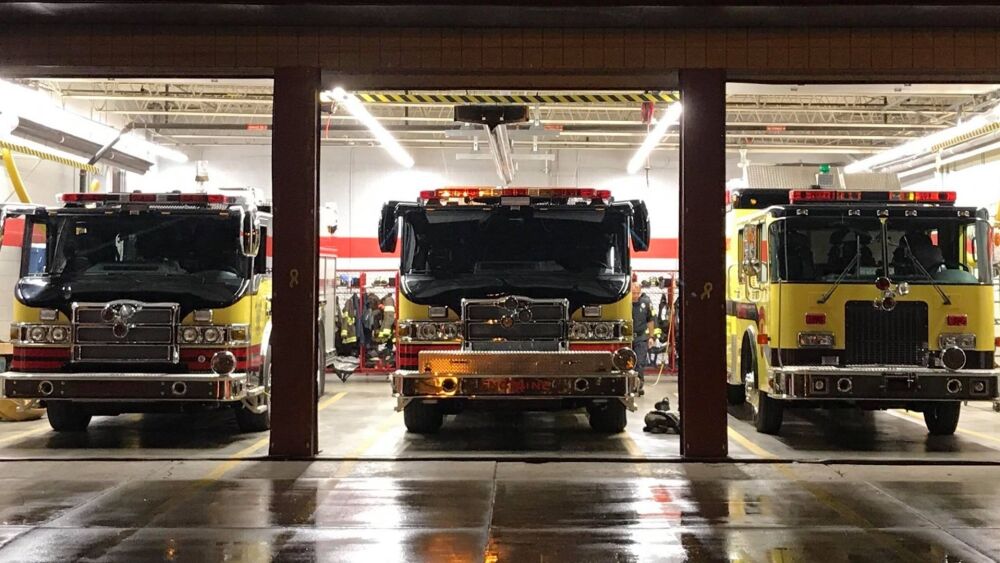By Nick Taylor
mlive.com
GRAND BLANC TOWNSHIP, Mich. — Officials are looking to the township’s police and fire departments to potentially help fill existing gaps in local EMS services.
Grand Blanc Township has recently been looking for ways to improve EMS services in the area, which are provided through the Genesee County 911 Consortium.
“Talking isn’t going to solve anything,” Grand Blanc Township Fire Chief Jamie Jent said. “At the end of the day, people have to come up with some solutions, and unfortunately, solutions cost money.”
While township officials have rejected the prospect of entering an exclusive contract with any EMS providers, they remain dissatisfied with the services provided through the county, especially when it comes to waiting times for emergency calls.
The township maintains its stance that exclusive EMS contracts are illegal and conflicts with the direct dispatch method, through which the closest EMS provider is dispatched to the scene of an emergency.
“When EMS units are being dispatched based on a contract as opposed to the closest unit, I’m not sure they’re getting the best,” Township Supervisor and Genesee County 911 Consortium Board Vice President Scott Bennett said.
Six township firefighters are already enrolled in a medical first responder course provided by the state of Michigan.
“I’m trying to get as many of our firefighters medically trained as we can to get certified, at least to the medical first responder level so we can start providing that level of care to the township,” Jent said.
The course itself is free, but the department is responsible for covering the cost of course books for firefighters, which runs $80 each.
“It’s not that much of an expense,” Jent said.
A total of 12 firefighters in the department are already trained medically. This includes medical first responders and paramedics.
Several officers in the township’s police department have also received some form of medical training, and each of the department’s cars contain first aid equipment such as automatic external defibrillators (AEDs).
“We just simply follow the prompts on the AED and we have had some success with that as well,” Grand Blanc Township Police Chief William Renye said during the township board’s June 10 meeting. “We generally are the first ones on scene to where we could provide that medical care.”
Since becoming a medical first responder will likely mean increased responsibility, firefighters and officers who receive this training would likely require pay increases.
“That’s all going to have to be negotiated somewhere down the line with the union eventually,” Jent said.
Additionally, township officials are concerned that having the fire and police departments serving in this increased capacity could open them up to potential lawsuits and make it difficult for officers and firefighters to focus on their other responsibilities.
“There’s 6,500 medical runs in the township, and I don’t have enough manpower to respond to that type of call volume,” Jent said.
While medical first responder training doesn’t cost much, each piece of equipment required for newly trained firefighters costs about $5,000.
This equipment includes stethoscopes, blood pressure cuffs, bandages, glucose, and Narcan. Additionally, it costs $100 to license each apparatus.
“That’s a pretty extensive list of medical equipment that you have to purchase,” Jent said.
Although medical first responders would be able to provide immediate medical care in emergency situations, they are not trained and do not have the equipment necessary to provide the same level of care as paramedics.
“This is the very basic level of medical response,” Jent said. “It’s kind of like a little bit more advanced version of first aid.”
Jent said he was surprised to learn about the current state of EMS services in Grand Blanc Township after becoming the municipality’s new fire chief in April.
He noted that he is also a paramedic.
“It was kind of shocking, and to see how it’s been going on for this long with no real direction or solution for this long is pretty disheartening,” he said.
Training its fire and police departments to be medical first responders is just one of several potential solutions to the township’s EMS issues that local officials are considering.
Other potential solutions the township is considering include providing its own EMS services and joining Fenton’s dispatch center.
The township has also considered signing preferred provider contracts rather than an exclusive EMS contract.
Under a preferred provider contract, dispatchers would be encouraged to call the township’s preferred EMS provider to the scenes of local emergencies.
“There’s a whole lot of considerations there that we’re going to look at all of them and see what makes sense for our community,” Bennett said.
©2025 Advance Local Media LLC.
Visit mlive.com.
Distributed by Tribune Content Agency, LLC.







